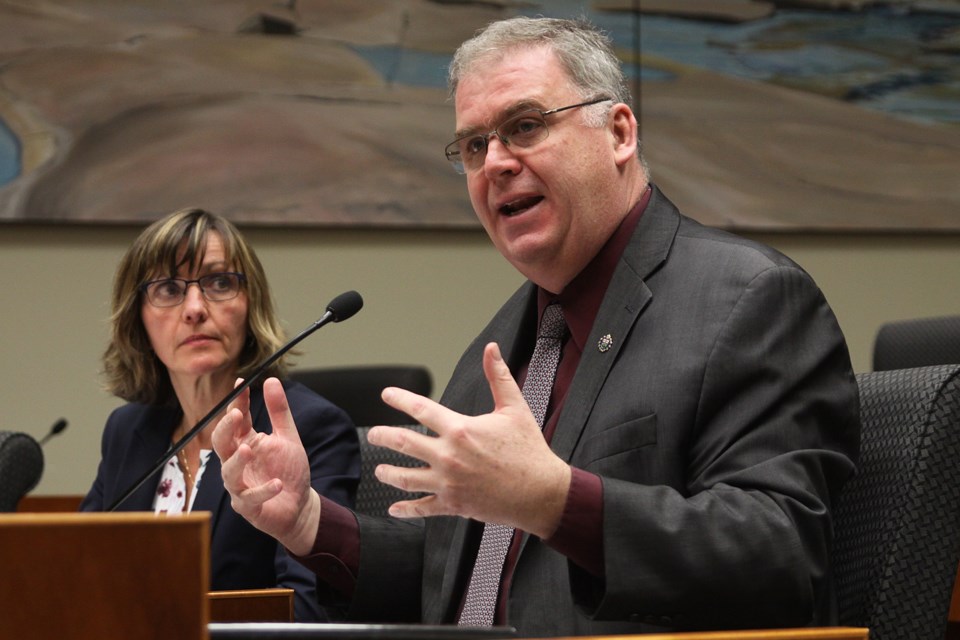THUNDER BAY – Legislative changes by senior levels of government could force city administration and the next council to really sharpen their pencils to keep tax levy increases consistent with recent averages.
The city’s long-term financial outlook, which was presented at a special budget meeting on Tuesday night, forecasts a gross municipal tax levy increase of 5.03 per cent in 2019 followed by a 4.75 per cent hike in 2020.
Those projections include added costs of nearly $390,000 from federal pension reform, an additional impact of $339,000 from the provincial Fair Workplaces Better Jobs Act that has already taken a $1.1 million hit on the 2018 budget as well as an expected decline in the city’s Ontario Municipal Partnership Fund allocation, city treasurer Linda Evans told council.
The budget is also expected to rise as a result of $960,000 in new debt repayment costs, 70 per cent of which would be accounted for by the city’s potential debenture contribution to the Thunder Bay Art Gallery’s desired relocation to the waterfront.
But city manager Norm Gale cautioned the estimated levy increases don’t factor in likely inevitable efforts to trim the costs.
“That assumes status quo budgeting with no changes to anything we do know and includes all of the increases and costs we project. That does not include decisions made by council, moves made by council in the future that would presumably mitigate those budget increase,” Gale said.
Coun. Trevor Giertuga noted council has been shown future year projections before in the range of five per cent and then have ended up approving budgets in the range of 2.5 to three per cent.
“It always comes in lower and I don’t know if it’s meant to soften the current increase and the blow of that,” Giertuga said.
The proposed 2018 budget begins with a gross municipal levy hike of 3.61 per cent – or a net of 2.9 per cent after factoring growth. The tax levy is the total amount of money that needs to be raised from all municipal taxpayers and is not the change to property tax rates.
This year’s starting point is slightly above Thunder Bay’s 10-year gross levy increase average of 3.36 per cent – which amounts to a net of 2.59 per cent after growth.
From 2012 through 2017, administration identified and slashed 10.7 million in cost containment and efficiencies with another $1.7 million projected in the proposed 2018 budget.
“What we have done is we have stunted budget growth by removing costs from the budget,” Gale said.
“These are real reductions. These are jobs, these are things that have been taken out and removed from the budget, which slows the growth of the budget. If we hadn’t done that, the budget would be $12.4 million larger than what we presented.”
The municipal tax per household in 2017 for Thunder Bay was $3,695, which was above the provincial average of $3,446 but below the $3,860 average for Ontario municipalities with a population of more than 100,000. Combined with water and wastewater costs, Thunder Bay drops below both the provincial average and larger municipality average.
At more than $3 per square foot, the city’s commercial office buildings property tax far exceeds the provincial average and Thunder Bay’s standard industrial property tax is also higher than Ontario averages.
The budget process continues on Thursday where members of the public will have their opportunity to provide deputations.
